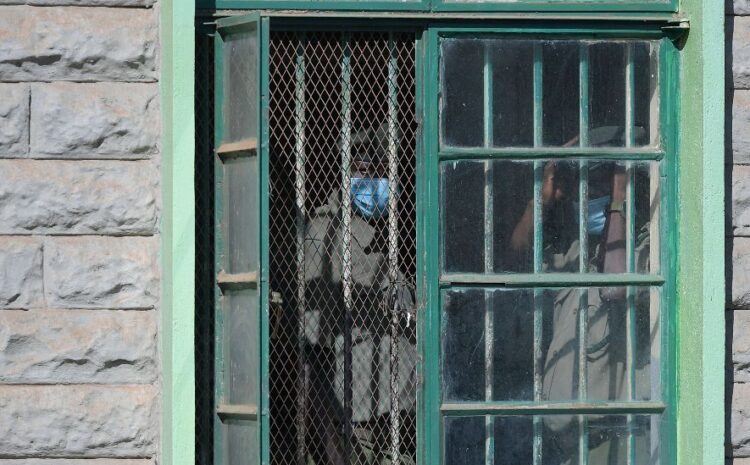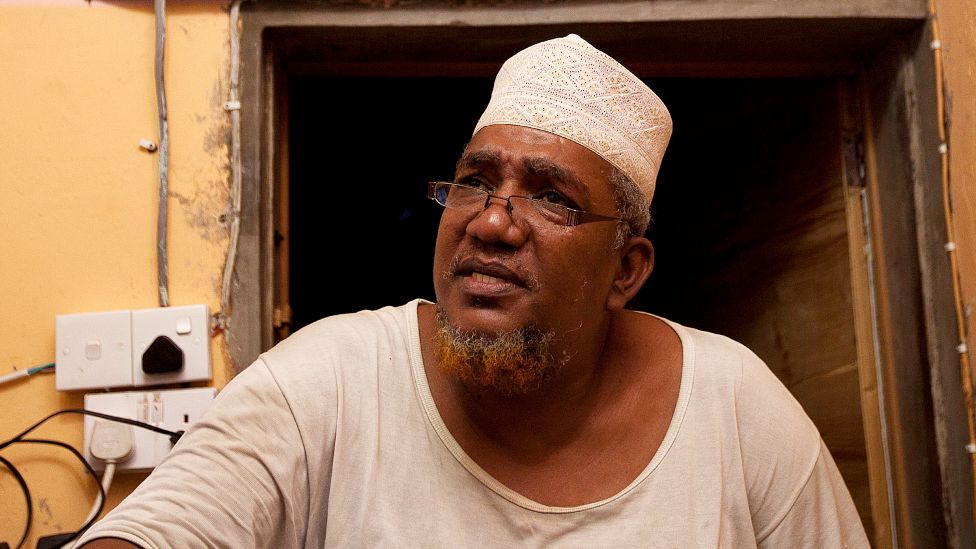
IMAGE SOURCE, AFP Image caption, Kamiti Maximum Prison has a notorious reputation and conditions for inmates are reportedly poor
By Emmanuel Igunza
BBC News, Nairobi
Guyo Gorsa Buru said he feared he could be abducted and killed by state agents once released as is alleged has happened to other terror suspects.
He was arrested in 2018 and charged with possessing material that promoted a terrorist group and for collaborating with Somalia-based al-Shabab militants.
The court in the capital has allowed him to remain in custody for 30 days.
Earlier, a chief magistrate at Nairobi’s Milimani law courts ruled that the state had failed to prove its case against Sheikh Buru.
His lawyer has asked the High Court for the guarantee of state protection for his client once freed.
The fact that he wants to remain at Kamiti, which has a notorious reputation, shows how much he feels his life is in danger.
In April 2014, Abubakar Sharif Ahmed, known as Makaburi, was shot dead in Mombasa as he left a courtroom – this followed the killings of two other imams in the coastal city.
 IMAGE SOURCE, AFP
IMAGE SOURCE, AFPFour months before Makaburi’s killing, a member of Kenya’s anti-terror police told the BBC how it treated al-Shabab suspects: “The justice system in Kenya is not favourable to the work of the police. So we opt to eliminate them.”
Amnesty International and other human rights groups often accuse Kenya’s police of brutal tactics, including extrajudicial killings and abductions.
